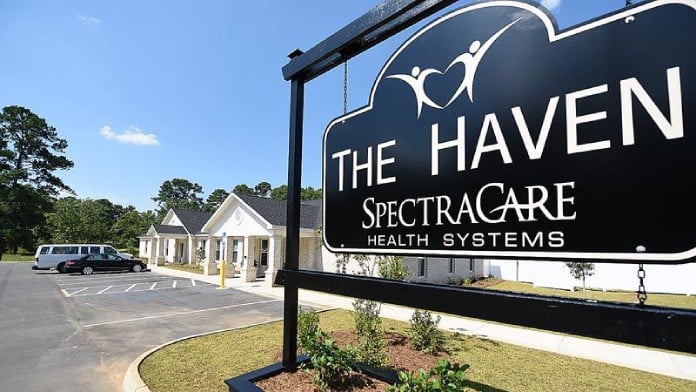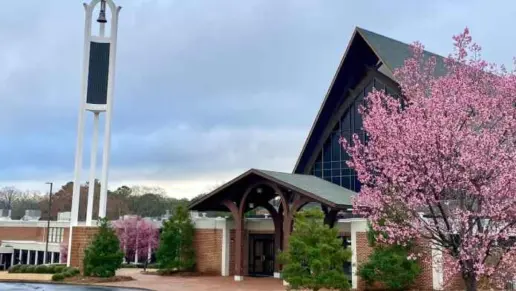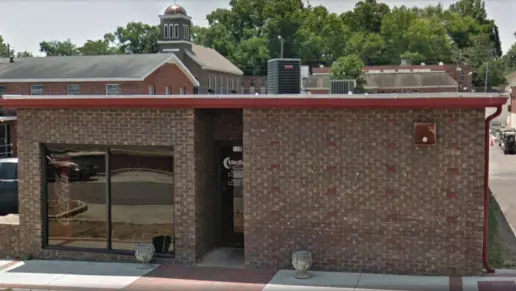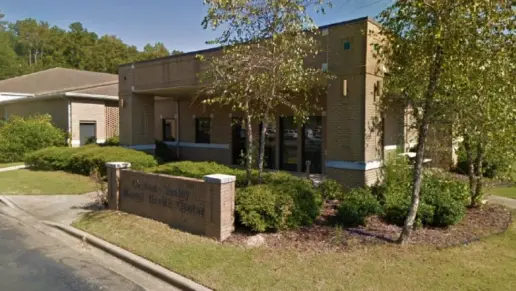My brother decided to come here because it was the only place he had received good recommendations about. Of course, it was not always easy for him but now thanks to Haven he is finally sober. Thank God for what you do.
About Haven
The Haven, operated by SpectraCare Health Systems, is a residential treatment facility located in Dothan, Alabama. The facility provides an intensive therapeutic environment that focuses on drug and alcohol rehabilitation and the treatment of mental health concerns that may impact a person’s ability to overcome addiction.
The Haven offers residential inpatient treatment services, 12-Step groups, and continuing care. Admission priority is given to pregnant women, IV drug users, and people with dependent children.
The Haven’s residential program is for men and women with alcohol or other drug-related problems. Individual counseling, group therapy, family therapy, lectures and discussion, recreation therapy, and weekly continuing care groups are interwoven into the treatment process. 12-Step meetings are introduced, and regular attendance helps individuals work the steps and participate in an industry-standard addiction treatment model that can continue post treatment.
The 12-Step program is a common recovery model based on Alcoholics Anonymous (AA). Beginning steps involve admitting powerlessness over the addiction and creating a plan for recovery based in a Higher Power. Middle steps include self-examination and making amends to those who’ve been hurt by the addiction. The later steps include continuing to take personal inventory while living a life of recovery and supporting others in doing the same. Additional 12-Step groups include Narcotics Anonymous (NA), Cocaine Anonymous (CA), Dual Recovery Anonymous (DRA), Sex and Love Addicts Anonymous (SLAA), and Gamblers Anonymous (GA).
Continuing Care at The Haven is a weekly meeting that allows alumni and those currently in treatment the opportunity to connect and support one another in issues that arise post treatment. The topics vary.
Latest Reviews
Rehab Score
Gallery

Location
Accepted Insurance
Other Forms of Payment
Private insurance refers to any kind of healthcare coverage that isn't from the state or federal government. This includes individual and family plans offered by an employer or purchased from the Insurance Marketplace. Every plan will have different requirements and out of pocket costs so be sure to get the full details before you start treatment.
Self-pay involves paying for treatment out of your own pocket. You can use savings or credit, get a personal loan, or receive help from family and friends to fund your treatment. If you don't have insurance or your insurance plan doesn't cover a specific program, self-pay can help ensure you still get the care you need.
Financial aid can take many forms. Centers may have grants or scholarships available to clients who meet eligibility requirements. Programs that receive SAMHSA grants may have financial aid available for those who need treatment as well. Grants and scholarships can help you pai for treatment without having to repay.
Medicare is a federal program that provides health insurance for those 65 and older. It also serves people under 65 with chronic and disabling health challenges. To use Medicare for addiction treatment you need to find a program that accepts Medicare and is in network with your plan. Out of pocket costs and preauthorization requirements vary, so always check with your provider.
Military members, veterans, and eligible dependents have access to specific insurance programs that help them get the care they need. TRICARE and VA insurance can help you access low cost or no cost addiction and mental health treatment. Programs that accept military insurance often have targeted treatment focused on the unique challenges military members, veterans, and their families face.
Medicaid is a state based program that helps lower-income individuals and families pay for healthcare. Medicaid covers addiction treatment so those enrolled can use their coverage to pay for rehab. When a program accepts Medicaid the client often pays very little or nothing out of their own pocket.
Addiction Treatments
Levels of Care
Treatments
The goal of treatment for alcoholism is abstinence. Those with poor social support, poor motivation, or psychiatric disorders tend to relapse within a few years of treatment. For these people, success is measured by longer periods of abstinence, reduced use of alcohol, better health, and improved social functioning. Recovery and Maintenance are usually based on 12 step programs and AA meetings.
Drug rehab in Alabama provides medical or psychotherapeutic treatment for drug dependency. Methods of treatment often include a combination of medication, counseling, and recreational therapies.
Many of those suffering from addiction also suffer from mental or emotional illnesses like schizophrenia, bipolar disorder, depression, or anxiety disorders. Rehab and other substance abuse facilities treating those with a dual diagnosis or co-occurring disorder administer psychiatric treatment to address the person's mental health issue in addition to drug and alcohol rehabilitation.
Opioid rehabs specialize in supporting those recovering from opioid addiction. They treat those suffering from addiction to illegal opioids like heroin, as well as prescription drugs like oxycodone. These centers typically combine both physical as well as mental and emotional support to help stop addiction. Physical support often includes medical detox and subsequent medical support (including medication), and mental support includes in-depth therapy to address the underlying causes of addiction.
Substance rehabs focus on helping individuals recover from substance abuse, including alcohol and drug addiction (both illegal and prescription drugs). They often include the opportunity to engage in both individual as well as group therapy.
Programs


Clinical Services
Cognitive Behavioral Therapy (CBT) is a therapy modality that focuses on the relationship between one's thoughts, feelings, and behaviors. It is used to establish and allow for healthy responses to thoughts and feelings (instead of unhealthy responses, like using drugs or alcohol). CBT has been proven effective for recovering addicts of all kinds, and is used to strengthen a patient's own self-awareness and ability to self-regulate. CBT allows individuals to monitor their own emotional state, become more adept at communicating with others, and manage stress without needing to engage in substance abuse.
Group therapy is any therapeutic work that happens in a group (not one-on-one). There are a number of different group therapy modalities, including support groups, experiential therapy, psycho-education, and more. Group therapy involves treatment as well as processing interaction between group members.
In individual therapy, a patient meets one-on-one with a trained psychologist or counselor. Therapy is a pivotal part of effective substance abuse treatment, as it often covers root causes of addiction, including challenges faced by the patient in their social, family, and work/school life.
Rehab treatment in Alabama often involves motivational interviewing (MI). This is an evidence based approach that helps you discover your own interest in change. You'll decide for yourself what next steps you're willing to commit to in order to reach your goals.
Trauma therapy helps you process and heal from traumatic events. Your therapist provides a safe space for you to explore emotions, develop coping strategies, and integrate the traumatic experience into a more coherent narrative. This helps to promote long term mental health.
If you're experiencing relationship challenges, couples therapy in Alabama can help you work through those difficulties. You and your partner will meet with a professional therapist to work on current issues and strengthen your relationship.
Research clearly demonstrates that recovery is far more successful and sustainable when loved ones like family members participate in rehab and substance abuse treatment. Genetic factors may be at play when it comes to drug and alcohol addiction, as well as mental health issues. Family dynamics often play a critical role in addiction triggers, and if properly educated, family members can be a strong source of support when it comes to rehabilitation.
Experiential therapy is a form of therapy in which clients are encouraged to surface and work through subconscious issues by engaging in real-time experiences. Experiential therapy departs from traditional talk therapy by involving the body, and having clients engage in activities, movements, and physical and emotional expression. This can involve role-play or using props (which can include other people). Experiential therapy can help people process trauma, memories, and emotion quickly, deeply, and in a lasting fashion, leading to substantial and impactful healing.
Amenities
-
Residential Setting
-
Private Rooms
Staff & Accreditations
Staff

CEO

CMO

COO

Chief Human Resource Officer

Chief Compliance Officer

CFO

CIO
Accreditations

State Licenses are permits issued by government agencies that allow rehab organizations to conduct business legally within a certain geographical area. Typically, the kind of program a rehab facility offers, along with its physical location, determines which licenses are required to operate legally.
State License: Alabama
Contact Information
3542 Montgomery Hwy
Dothan, AL 36303



